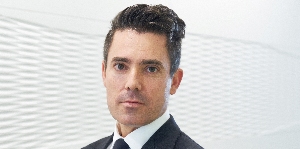KiwiSaver and social responsibility
Some claims of "social responsibility" may need a bit of further investigation. Michael Lang elaborates.
Monday, January 20th 2020, 8:00AM
by Michael Lang

HOW SOCIALLY RESPONSIBLE IS YOUR KIWISAVER MANAGER?
Advisers who have been in business for a decade or more will be aware of the power of fads, or as they’re commonly marketed in finance: investment themes. Investment themes are powerful because they can be packaged into a product and used to raise capital.
In the early 90s it was Pacific Basin funds, then emerging markets, followed quickly by technology in the 2000s and more recently, highly cyclical commodities such as gold, water, forestry, milk – and avocados of all things.
Some managers appear to have approached socially responsible investing in the same way, by treating it as a fad with which to raise capital. This is a mistake.
Millennials get the most attention for values-based investing, but there is growing interest from the older and much wealthier Generation X.
In 2018 NZ Funds surveyed New Zealanders to see what mattered most to them when investing. ESG (environmental, social and governance) rated first, ahead of returns, fees and whether their manager was locally or internationally owned. As a result, NZ Funds’ board decided to take an ESG approach with all the money we manage.
Embracing socially responsible management is not easy for a manager, and it only gets harder for an adviser or an investor as there is no one definition of what is socially responsible and what is not.
HOW MANAGERS CAN ALL CLAIM TO BE SOCIALLY RESPONSIBLE
Any manager with a policy of considering ESG factors must note in their KiwiSaver product disclosure statement whether “responsible investment, including environmental, social, and governance considerations, is taken into account”.
Unfortunately, with the exception of controversial weapons (cluster munitions, anti-personnel mines, or nuclear armaments), there is nothing to stop a manager from “considering” ESG factors and then investing anyway. In this way, KiwiSaver managers can, and most do, claim to be socially responsible.
THE SOCIALLY RESPONSIBLE FAKE NEWS TEST
Having a list of exclusions (or prohibited investments) based on industry type is the most visible way for investors to understand how a manager may implement their ESG policy.
To test how far KiwiSaver managers go in developing their exclusions, we analysed all their KiwiSaver funds against banned controversial weapons and added six additional categories: tobacco, civilian firearms, gambling, alcohol, fossil fuels and pornography.
The good news is, over 70% of managers have firm-wide policies to restrict investments in at least one category other than controversial weapons. The most commonly restricted categories are tobacco and civilian firearms.
However, despite the soothing words of almost all Product Disclosure Statements, only around a quarter of the managers restrict investments in four or more of the categories. Those managers were: Simplicity, CareSaver, NZ Funds, Juno and Kōura Wealth. Simplicity deserves special mention as being the only KiwiSaver manager with a full score.
At the other end of the spectrum were Funds Administration New Zealand and AMP who only excluded controversial weapons.
In addition, Aon, Nikko, QuayStreet and SuperLife either do not take responsible investing into account or have no specific exclusions in their ESG policies. Some managers had specific funds that had exclusions, but this did not seem to be a firmwide policy.
Managers with limited exclusions may be treating socially responsible investing as a fad, choosing to launch a small number of prominently labelled funds, while quietly managing the bulk of funds with few or no restrictions.
Failing to embrace ESG is, in our view, a mistake. There is increasing evidence that ESG improves rather than penalises returns. A good example is Morningstar’s November 2016 report, “Sustainable Investing Research Suggests No Performance Penalty”.
It is timely that the FMA has asked for consultation on green bonds and responsible investment products. Hopefully, transparency in this area will improve with time.
1. CareSaver excludes companies that target young people with cheap alcohol. 2. NZ Funds excludes companies that have more than 10% of their revenue from thermal coal and oil sands. Fisher Funds excludes companies if a significant proportion of their core business is in thermal coal production. 3. These managers have specific funds which have additional exclusions. Source: the public websites of each respective manager.
Michael Lang is Chief Executive at NZ Funds and his comments are of a general nature. New Zealand Funds Management Limited is the issuer of the NZ Funds KiwiSaver Scheme. A copy of the latest Product Disclosure Statement for the scheme is available on request and at www.nzfunds.co.nz.
Michael Lang is Chief Executive at NZ Funds. New Zealand Funds Management is the issuer of the NZ Funds KiwiSaver Scheme.
| « Kōura: People see advice and KiwiSaver as distinct | Morningstar: Don't expect another 2019 » |
Special Offers
Comments from our readers
No comments yet
Sign In to add your comment
| Printable version | Email to a friend |


